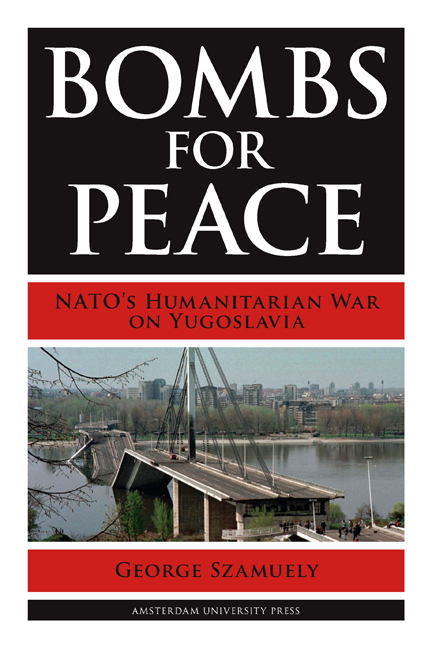Book contents
- Frontmatter
- Dedication
- Contents
- Acknowledgements
- Introduction
- 1 Yugoslavia: Destroying States for Fun and for Profit
- 2 In Search of the Good War: Bosnia: April 1992 to May 1993
- 3 Peacemaking v. Humanitarianism: Bosnia and Croatia: June 1993 to December 1995
- 4 Humanitarianism Fulfilled: Bosnia’s Unsafe Areas
- 5 Kosovo: The Denial of Sovereignty
- 6 Kosovo: The set-up
- 7 Kosovo: Standing up to the Yugoslav Goliath
- Conclusions: Ensuring Success by Lowering Standards
- Notes
- Select Bibliography
- Index
1 - Yugoslavia: Destroying States for Fun and for Profit
Published online by Cambridge University Press: 12 February 2021
- Frontmatter
- Dedication
- Contents
- Acknowledgements
- Introduction
- 1 Yugoslavia: Destroying States for Fun and for Profit
- 2 In Search of the Good War: Bosnia: April 1992 to May 1993
- 3 Peacemaking v. Humanitarianism: Bosnia and Croatia: June 1993 to December 1995
- 4 Humanitarianism Fulfilled: Bosnia’s Unsafe Areas
- 5 Kosovo: The Denial of Sovereignty
- 6 Kosovo: The set-up
- 7 Kosovo: Standing up to the Yugoslav Goliath
- Conclusions: Ensuring Success by Lowering Standards
- Notes
- Select Bibliography
- Index
Summary
The disastrous consequences of the West's intervention in Yugoslavia stemmed from its willful misunderstanding of the nature of the country's crisis.
The wars in Yugoslavia were triggered by the insistence of first, Croatia and Slovenia, then Bosnia, then Kosovo to seek independence without bothering to go through the formality of negotiating the terms of their exit. Since there was no way that six-nation, six-republic Yugoslavia could break up without war, and therefore without the atrocities that are inseparable from war, responsibility for the subsequent humanitarian crises rested with those who insisted on secession at all costs, and those who, willfully and recklessly, served as the secessionists’ enablers. War was inevitable once the European Union and the United States accepted – or more accurately, encouraged – the dissolution of Yugoslavia in the face of fierce opposition from at least 40% of its population – the Serbs – and probably from a substantial majority of Yugoslavs.
ORIGINS OF THE CRISIS
The origins of the crisis in the Balkans in the late 1980s lie further back than the secessions of 1991: not in the alleged aspiration of Serbia's leaders to create a Greater Serbia, but in the massive economic crisis triggered by the inability of the Socialist Federal Republic of Yugoslavia (SFRY) to repay an international debt it had run up in the 1970s. To avoid defaulting, the sfry was forced to accept the stewardship of the International Monetary Fund. The imf's familiar deflationary remedies had the familiar disastrous effects: cuts in wages, cuts in payroll, cuts in social benefits, shutdowns of supposedly uneconomic factories, and cuts in imports. Living standards plummeted. Resentful at having to shoulder a growing economic burden, the more prosperous regions of Yugoslavia responded much as the more prosperous regions of Italy did in the early 1990s and the Flemish regions of Belgium a little later: they decided they wanted out.
Interestingly, the most forceful opposition to such separatist movements came initially from the International Monetary Fund. As Susan Woodward put it in Balkan Tragedy:
Despite years of pushing decentralization in Yugoslavia, the imf advisers and economic liberals now attributed the lack of monetary discipline to excessive decentralization of the banking and foreign exchange systems.
- Type
- Chapter
- Information
- Bombs for PeaceNATO's Humanitarian War on Yugoslavia, pp. 43 - 124Publisher: Amsterdam University PressPrint publication year: 2013



